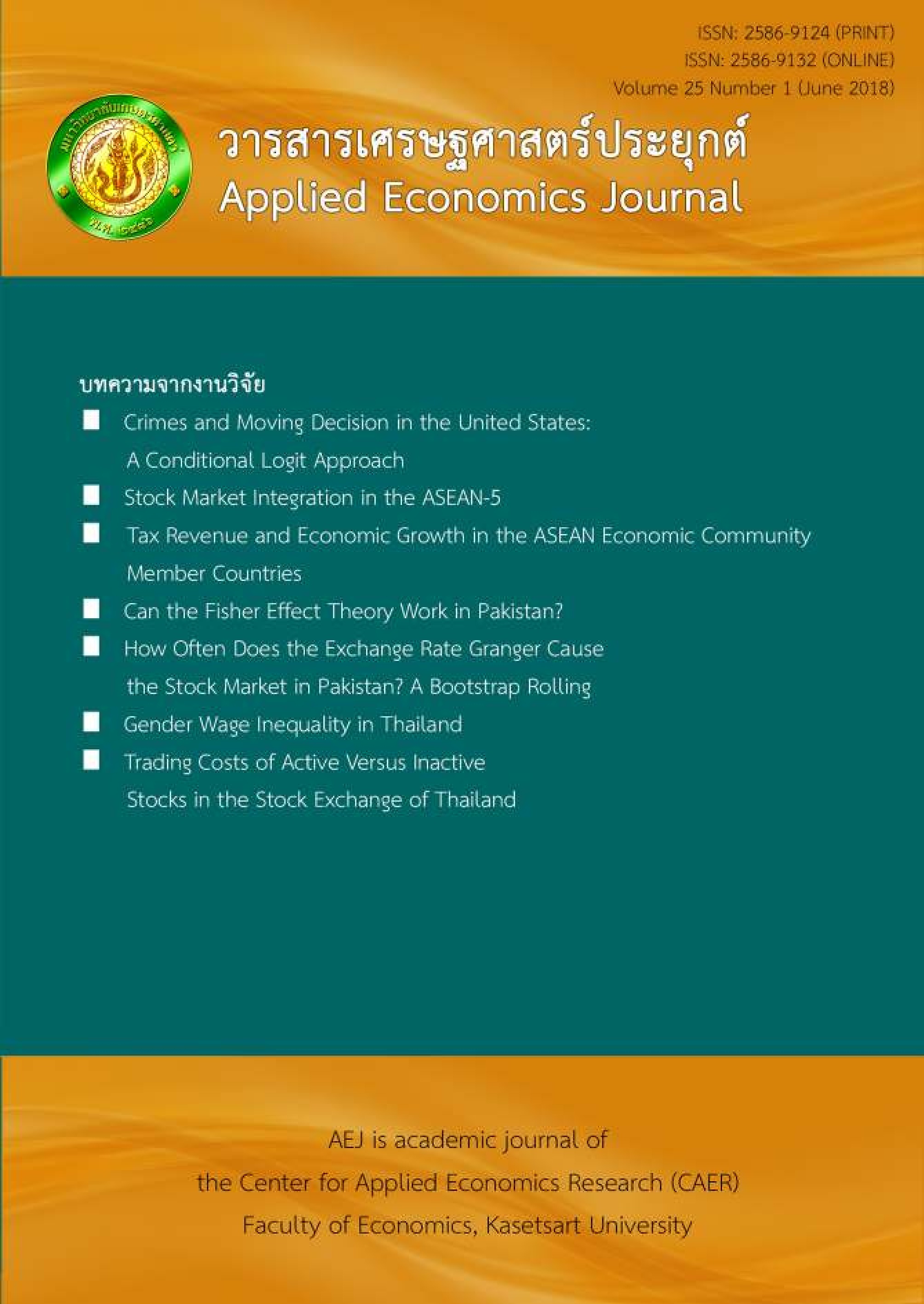Can the Fisher Effect Theory Work in Pakistan?
Main Article Content
Abstract
This paper examines the relationship between the stock market and inflation rate in Pakistan, using the bootstrap Granger full-sample causality test and sub-sample rolling window estimation to test whether the results support the Fisher hypothesis in Pakistan. The empirical result of full sample size shows the unidirectional causality between the stock market and inflation rate. It further shows that in the presence of structural changes, full sample relationship is unstable and unreliable. We use the rolling window estimation considering the time-varying characteristics and conclude bidirectional causality between the inflation rate and stock market in the different sub-sample. The findings are inconsistent with Fisher hypothesis. The conclusion that Inflation rate and the stock market have no positive long-term relationship; the stock market does not offer a hedge against an inflation rate so the policy maker should take measures to balance the tradeoff between the stock market and inflation rate in the short run.
Article Details
The paper is published under CC BY-NC-ND, in which the article is freely downloaded and shared in its original form non-commercially and its citation details are identified.


